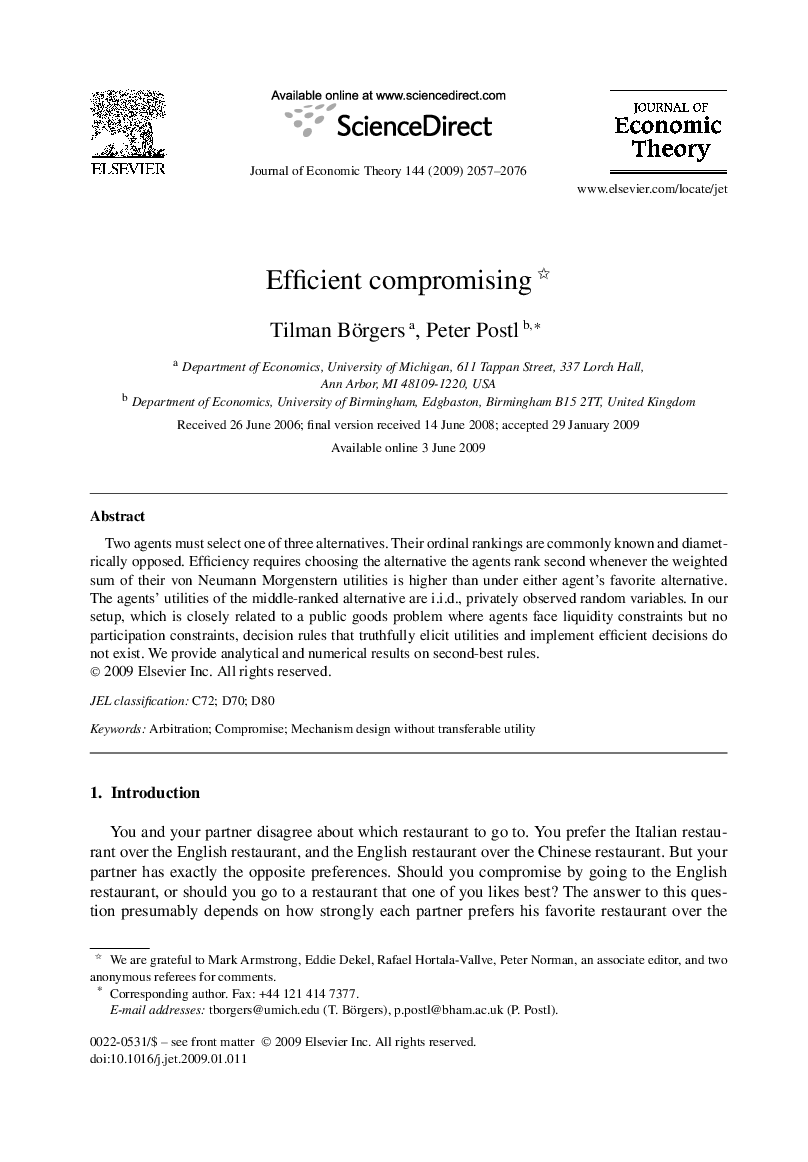| Article ID | Journal | Published Year | Pages | File Type |
|---|---|---|---|---|
| 957130 | Journal of Economic Theory | 2009 | 20 Pages |
Abstract
Two agents must select one of three alternatives. Their ordinal rankings are commonly known and diametrically opposed. Efficiency requires choosing the alternative the agents rank second whenever the weighted sum of their von Neumann Morgenstern utilities is higher than under either agent's favorite alternative. The agents' utilities of the middle-ranked alternative are i.i.d., privately observed random variables. In our setup, which is closely related to a public goods problem where agents face liquidity constraints but no participation constraints, decision rules that truthfully elicit utilities and implement efficient decisions do not exist. We provide analytical and numerical results on second-best rules.
Keywords
Related Topics
Social Sciences and Humanities
Economics, Econometrics and Finance
Economics and Econometrics
Authors
Tilman Börgers, Peter Postl,
